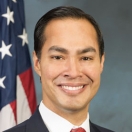

Ed. note: This is cross-posted on the U.S. Department of Housing and Urban Development's blog. See the original post here.
Earlier this week, I traveled to Cleveland, Ohio to speak at the fourth regional forum as part of this year’s White House Conference on Aging (WHCOA). The meeting brought together a wide variety of leaders to work on a common goal: addressing the changing landscape of aging.
Our nation is experiencing an incredible transformation, with 10,000 Americans turning 65 every day. And we also know that the way folks view retirement is changing — it’s no longer looked at as the closing chapter in one’s life, but rather the beginning of a new one.
As HUD Secretary, I’ve made supporting affordable and accessible communities for all Americans one of my top priorities. One example is HUD’s Community Development Block Grant (CDBG) funds, which provide approximately $34 million a year to improve senior centers across the nation; an additional $36 million to offer public services to approximately one million seniors annually; and CDBG funds the rehabilitation of nearly 70,000 single family and multi-family housing units each year, many of them occupied by low-income older adults — allowing them to age in place.
Strong, diverse communities benefit each of us, but they are especially critical for older adults who want to remain active, find affordable housing, and access needed health and social services.
Like many younger generations, they also want access to amenities and cultural opportunities that urban centers offer. The one thing that’s clear is that we need to get this right. If we don’t, not only do we make it more difficult for older Americans to live longer and healthier lives, the costs can be significant — potentially depleting a family’s life savings for basic housing and healthcare costs. Our communities will also lose out on the lifetime of knowledge, skills and experience that older Americans offer.
That’s why we’re approaching this issue through a nationwide conversation — and we need to hear from you. If you want to add your own thoughts to the discussion on healthy aging and healthy communities, visit the WHCOA website where you can share your comments, thoughts, and ideas through the Get Involved section or sign up for updates.



